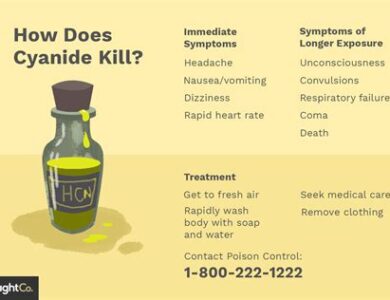
Mycotoxin Poisoning Symptoms
Mycotoxin Poisoning Symptoms
Mycotoxins are toxic compounds produced by certain types of fungi that can infect food and feedstuffs. Exposure to mycotoxin poisoning symptoms can cause a range of health problems, including mycotoxin poisoning, which occurs when people or animals ingest or inhale contaminated food or feed.
Symptoms of mycotoxin poisoning can vary depending on the type and amount of mycotoxin ingested. In general, symptoms can include nausea, vomiting, abdominal pain, diarrhea, and fever. These symptoms can appear within hours or days after exposure, and they can last for several days or even weeks.


One of the most common mycotoxins is aflatoxin, which is produced by Aspergillus fungi. Aflatoxin is a potent hepatotoxin, meaning that it can damage the liver. Symptoms of aflatoxin poisoning include jaundice (yellowing of the skin and eyes), abdominal swelling, and hemorrhaging. Long-term exposure to aflatoxin can increase the risk of liver cancer.

Another mycotoxin that can cause serious health problems is ochratoxin, which is produced by Aspergillus and Penicillium fungi. Ochratoxin can damage the kidneys and has been linked to kidney disease in humans and animals. Symptoms of ochratoxin poisoning include fatigue, weakness, and decreased urine output.
Fumonisins are another group of mycotoxins that can cause health problems. Fumonisins are produced by Fusarium fungi and can contaminate corn and other grains. Exposure to fumonisins has been linked to esophageal cancer in humans and pulmonary edema (fluid buildup in the lungs) in animals. Symptoms of fumonisin poisoning can include abdominal pain, diarrhea, and vomiting.
Preventing mycotoxin poisoning involves taking steps to limit exposure to contaminated food and feed. This includes storing food and feed in dry, cool conditions and regularly inspecting it for signs of mold growth. In addition, it’s important to follow good agricultural practices, such as using appropriate crop rotations and avoiding the use of contaminated seeds.
In conclusion, mycotoxin poisoning can cause a range of health problems, and symptoms can vary depending on the type and amount of mycotoxin ingested. To prevent mycotoxin poisoning, it’s important to take steps to limit exposure to contaminated food and feed and to follow good agricultural practices. If you suspect that you or someone you know has been exposed to mycotoxins, seek medical attention right away.
Gastrointestinal Symptoms of Mycotoxin Poisoning
Mycotoxins are toxic substances produced by certain types of fungi that can contaminate food and feed. These toxins have been associated with various health problems in humans and animals, including gastrointestinal symptoms.
Gastrointestinal symptoms of mycotoxin poisoning can vary depending on the type and amount of toxin ingested, as well as individual sensitivity. Common symptoms include abdominal pain, nausea, vomiting, diarrhea, and bloating. In severe cases, mycotoxin poisoning can lead to liver damage and even death.
One of the most well-known mycotoxins is aflatoxin, produced by Aspergillus fungi. Aflatoxin contamination is commonly found in crops like peanuts, corn, and cottonseed. Symptoms of aflatoxin poisoning can include liver damage and cancer, as well as gastrointestinal distress.
Another mycotoxin of concern is ochratoxin, which can be found in cereals, coffee, and wine. Ochratoxin has been linked to kidney damage and has also been associated with gastrointestinal symptoms such as abdominal pain and diarrhea.
Fusarium toxins are another group of mycotoxins that can cause gastrointestinal problems. These toxins are commonly found in wheat, barley, and maize. Symptoms of Fusarium toxin poisoning can include abdominal pain, diarrhea, and vomiting.
The best way to prevent mycotoxin poisoning is to avoid consuming contaminated food and feed. This can be achieved through proper storage, handling, and processing of food and feed products. Regular monitoring and testing for mycotoxin contamination can also help mitigate the risks.
In conclusion, mycotoxins can cause a range of gastrointestinal symptoms, including abdominal pain, nausea, vomiting, diarrhea, and bloating. The severity of these symptoms depends on the type and amount of toxin ingested. To prevent mycotoxin poisoning, it is important to take measures to avoid consumption of contaminated food and feed products.
Neurological Symptoms of Mycotoxin Poisoning
Mycotoxin poisoning is a term used to describe the adverse effects of exposure to mycotoxins, which are harmful substances produced by mold. When inhaled or ingested, these toxins can cause a wide range of symptoms, including neurological ones. In this article, we will explore the neurological symptoms of mycotoxin poisoning.
One of the most common neurological symptoms of mycotoxin poisoning is headaches. These can range from mild to severe and may be accompanied by other symptoms such as sensitivity to light and sound, nausea, and dizziness. In some cases, the headaches can become chronic and debilitating.
Another common neurological symptom is fatigue. Many people who have been exposed to mycotoxins report feeling tired all the time, even after getting enough sleep. This can make it difficult to concentrate and perform everyday tasks.
Brain fog is another symptom that is often reported by those who have been exposed to mycotoxins. This can include difficulty with memory, concentration, and mental clarity. It can feel as though your brain is working at a slower pace than usual, making it challenging to stay focused on tasks.
Vision problems can also occur in those exposed to mycotoxins. Blurred vision, eye irritation, and sensitivity to light can all be signs of toxicity. In some cases, mycotoxins can also lead to visual hallucinations.
Tremors and muscle weakness are other potential neurological symptoms of mycotoxin poisoning. These can be particularly concerning if they affect the ability to walk or perform fine motor tasks.
In conclusion, neurological symptoms are a common occurrence in those who have been exposed to mycotoxins. These symptoms can range from mild to severe and can affect different areas of the brain. If you suspect that you may have been exposed to mycotoxins, it is essential to seek medical attention promptly.
Skin and Eye Symptoms of Mycotoxin Poisoning
Mycotoxins are toxic secondary metabolites produced by certain types of fungi under specific environmental conditions, such as high humidity and temperature. These toxins can contaminate food crops and cause adverse health effects in humans and animals. Skin and eye symptoms are common signs of mycotoxin poisoning that should not be overlooked.
Skin symptoms of mycotoxin poisoning may vary depending on the type of mycotoxin involved. Some mycotoxins can cause skin irritation, rashes, and hives. Others can lead to blistering, peeling, and necrosis of the skin. For example, trichothecene mycotoxins, such as T-2 toxin and deoxynivalenol (DON), can cause skin lesions, hair loss, and scabs in animals and humans exposed to them.
Eye symptoms of mycotoxin poisoning may include redness, itchiness, watering, and sensitivity to light. Exposure to some mycotoxins, such as aflatoxins and ochratoxins, can cause eye damage and vision impairment. These toxins can accumulate in the liver and affect the production of vitamin A, which is essential for good eyesight. As a result, individuals exposed to these toxins may experience night blindness, cataracts, and other eye problems.
Preventing mycotoxin poisoning is crucial to avoid its harmful effects. Proper storage and handling of food crops, especially grains and nuts, can reduce the risk of fungal contamination and mycotoxin production. Regular inspection and testing of food products for mycotoxins can also help detect contaminated foods before they reach consumers.
In conclusion, mycotoxin poisoning can cause various skin and eye symptoms that should not be ignored. If you suspect that you or someone you know has been exposed to mycotoxins, seek medical attention immediately. Prevention is key to avoiding mycotoxin poisoning, and proper food handling and testing can go a long way in ensuring food safety.
Immune System Symptoms of Mycotoxin Poisoning
Mycotoxins are toxic substances produced by certain types of fungi that can grow in various foods, including grains, spices, and nuts. These toxins can pose a serious threat to human health, especially if consumed over an extended period of time. One area that can be significantly impacted by mycotoxins is the immune system.
The immune system is a complex network of cells, tissues, and organs that work together to defend the body against harmful invaders, such as bacteria, viruses, and toxins. However, when exposed to mycotoxins, the immune system can become compromised, leading to a range of symptoms.
Some common immune system symptoms associated with mycotoxin poisoning include:
1. Fatigue: Individuals who have been exposed to mycotoxins may experience chronic fatigue, even after a good night’s sleep. This is because the immune system is busy fighting off the toxins, leaving the body feeling drained and depleted.
2. Allergies: Mycotoxins can also trigger allergic reactions in some individuals. Symptoms may include itchy eyes, sneezing, runny nose, and skin rashes.
3. Respiratory Problems: Exposure to mycotoxins can also lead to respiratory problems, such as coughing, wheezing, and difficulty breathing. This is because the toxins can irritate the lungs and airways, making it harder to breathe.
4. Brain Fog: Mycotoxins can impact cognitive function, resulting in brain fog, poor memory, and difficulty concentrating. This is because the toxins can cross the blood-brain barrier and interfere with the functioning of the central nervous system.
5. Autoimmune Disorders: Finally, exposure to mycotoxins can increase the risk of developing autoimmune disorders, where the immune system attacks healthy cells and tissues. This can lead to a range of symptoms, including joint pain, skin rashes, and fatigue.
In conclusion, the immune system symptoms of mycotoxin poisoning can be wide-ranging and long-lasting. It’s important to avoid exposure to mycotoxins as much as possible by properly storing and handling food, and seeking professional help if you suspect you’ve been exposed. By taking steps to protect your immune system, you can reduce your risk of developing serious health problems associated with mycotoxin poisoning.
Reproductive Symptoms of Mycotoxin Poisoning
Mycotoxins are toxic compounds produced by fungi that grow on crops such as corn, wheat, and peanuts. These toxins can enter the human body through contaminated food and cause a range of health problems. Mycotoxin poisoning affects multiple systems in the body, including the reproductive system.
In women, mycotoxin poisoning can lead to irregular menstrual cycles, infertility, and spontaneous abortion. Mycotoxins have been found in breast milk, which can affect nursing infants and their growth and development. Exposure to mycotoxins during pregnancy can also lead to fetal growth restriction, abnormal fetal development, and stillbirth.
In men, mycotoxin poisoning can cause decreased sperm count, reduced sperm motility, and abnormalities in sperm morphology. This can lead to fertility problems and difficulty in conceiving. Mycotoxin exposure has also been linked to testicular dysfunction and hormonal imbalances in men.
Mycotoxins can also affect the development of the fetus during critical periods of growth and differentiation. Research has shown that exposure to mycotoxins during early pregnancy can result in birth defects, including neural tube defects and cleft palate. These toxins can also cause developmental delays and cognitive impairments.
Preventing mycotoxin contamination in food is essential for protecting reproductive health. Proper storage, handling, and processing of crops can help reduce the risk of contamination. Using organic farming practices, avoiding the use of moldy feed for livestock, and maintaining proper hygiene during food production can also help prevent mycotoxin contamination.
In summary, mycotoxin poisoning can have significant effects on the reproductive system, leading to fertility problems, abnormal fetal development, and birth defects. Preventing mycotoxin contamination in food is crucial for protecting reproductive health and ensuring safe, healthy pregnancies.
Chronic Health Effects of Mycotoxin Poisoning
Mycotoxins are toxic substances produced by certain fungi that grow on crops, particularly in warm and humid conditions. Mycotoxin poisoning can have chronic health effects, which can be debilitating and even deadly. In this article, we will explore the various ways mycotoxin poisoning can affect human health.
One of the most common chronic health effects of mycotoxin poisoning is respiratory problems. Exposure to mycotoxins through inhalation can cause asthma, bronchitis, and other respiratory diseases. This is because mycotoxins can damage the lungs and make it difficult for the body to fight off infections.
Another chronic health effect of mycotoxin poisoning is neurological damage. Mycotoxins can affect the nervous system, which can lead to seizures, headaches, and other neurological disorders. This is because mycotoxins can interfere with neurotransmitters in the brain and disrupt normal brain function.
Mycotoxin poisoning can also lead to gastrointestinal problems. When ingested, mycotoxins can damage the lining of the stomach and intestines, leading to diarrhea, vomiting, and other digestive issues. Long-term exposure to mycotoxins can even increase the risk of developing gastrointestinal cancers.
In addition to these chronic health effects, mycotoxin poisoning can also weaken the immune system, making it harder for the body to fight off infections. This can lead to increased susceptibility to illnesses and diseases, as well as slower recovery times.
It’s important to note that the severity of mycotoxin poisoning can vary depending on the level and duration of exposure. While acute mycotoxin poisoning can cause immediate symptoms such as nausea and dizziness, chronic exposure can lead to more serious and long-lasting health effects.
In conclusion, mycotoxin poisoning can have a range of chronic health effects, including respiratory problems, neurological damage, gastrointestinal issues, weakened immune system, and more. It’s important to take steps to limit exposure to mycotoxins, such as properly storing and handling food, and seeking medical attention if you suspect you may have been exposed. By being aware of the risks associated with mycotoxin poisoning, we can take steps to protect our health and well-being.

